- Home
- Vladimir Nabokov
The Luzhin Defense Page 10
The Luzhin Defense Read online
Page 10
"What do you mean?" she asked with alarm.
"No, please, please," exclaimed Luzhin, raising a finger. "I must have audience."
He came close to her and strangely half-opened his mouth, which caused an unusual expression of martyred tenderness to appear on his face.
"You are a kind, sensitive woman," said Luzhin slowly. "I have the honor, the honor of begging you to give me her hand."
He turned away as if having finished a speech on the stage and began to gouge a small pattern in the sand with his cane.
"Here's your shawl," said her daughter's breathless voice from behind and a shawl settled over her shoulders.
"Oh no, I'm hot, I don't need it, what do I want with a shawl ..."
Their walk that evening was particularly silent. Through her mind ran all the words she would have to say to Luzhin--hints about the financial side--he was probably not well off, he had the cheapest room in the hotel. And a very serious talk with her daughter. An unthinkable marriage, a most idiotic venture. But despite all this she was flattered that Luzhin had so earnestly and old-fashionedly addressed himself to her first.
"It's happened, congratulations," she said that evening to her daughter. "Don't look so innocent, you understand perfectly well. Our friend wishes to marry."
"I'm sorry he told you," replied her daughter. "It concerns only him and me."
"To accept the first rogue you come across ..." began the offended lady.
"Don't you dare," said her daughter calmly. "It's none of your business."
And what had seemed an unthinkable venture began to develop with amazing celerity. On the eve of his departure Luzhin stood on the tiny balcony of his room in his long nightshirt and looked at the moon, which was tremblingly disengaging itself from some black foliage, and while thinking of the unexpected turn taken by his defense against Turati, he listened through these chess reflections to the voice that still continued to ring in his ears, cutting across his being in long lines and occupying all the chief points. This was an echo of the conversation he had just had with her; she had again sat on his lap and promised--promised--that in two or three days she would return to Berlin, and would go alone if her mother decided to stay. And to hold her on his lap was nothing compared to the certainty that she would follow him and not disappear, like certain dreams that suddenly burst and disperse because the gleaming dome of the alarm clock has floated up through them. With one shoulder pressed against his chest she tried with a cautious finger to raise his eyelids a little higher and the slight pressure on his eyeball caused a strange black light to leap there, to leap like his black Knight which simply took the Pawn if Turati moved it out on the seventh move, as he had done at their last meeting. The Knight, of course, perished, but this loss was recompensed with a subtle attack by black and here the chances were on his side. There was, true, a certain weakness on the Queen's flank, or rather not a weakness but a slight doubt lest it was all fantasy, fireworks, and would not hold out, nor the heart hold out, for perhaps after all the voice in his ears was deceiving him and was not going to stay with him. But the moon emerged from behind the angular black twigs, a round, full-bodied moon--a vivid confirmation of victory--and when finally Luzhin left the balcony and stepped back into his room, there on the floor lay an enormous square of moonlight, and in that light--his own shadow.
8
That to which his fiancee was so indifferent produced on Luzhin an impression nobody could have foreseen. He visited the famous apartment, in which the very air seemed colored with phony folklore, immediately after obtaining his first point by defeating an extremely tenacious Hungarian; the game, it is true, had been postponed after forty moves, but the continuation was perfectly clear to Luzhin. To a faceless taxi driver he read aloud the address on the postcard ("We've come. Zhdyom vas vecherom--Expecting you this evening") and having imperceptibly surmounted the dim accidental distance, he cautiously tried to pull the ring out of the lion's jaws. The bell leapt into action immediately: the door flew open. "What, no overcoat? I won't let you in ..." but he had already stepped over the threshold, and was waving his arm and shaking his head in an attempt to overcome his shortness of breath. "Pfoof, pfoof," he gasped, preparing himself for a wonderful embrace, and then suddenly noticed that his left hand, already extended to one side, held an unnecessary cane and his right his billfold, which he had evidently been carrying since he paid his taxi fare. "Wearing that black monster of a hat again ... Well, why are you standing there? This way." His cane dived safely into a vaselike receptacle; his billfold, at the second thrust, found the right pocket; and his hat was hung on a hook. "Here I am," said Luzhin, "pfoof, pfoof." She was already far away at the far end of the entrance hall; she pushed a door sidewise, her bare arm extended along the jamb, bending her head and gaily looking up at Luzhin. And over the door, immediately over the lintel, there was a large, vivid oil painting that caught the eye. Luzhin, who normally did not notice such things, gave his attention to it because it was greasily glossed with electric light and the colors dazed him, like a sunstroke. A village girl in a red kerchief coming down to her eyebrows was eating an apple, and her black shadow on a fence was eating a slightly larger apple. "A Russian baba," said Luzhin with relish and laughed. "Well, come in, come in. Don't upset that table." He entered the drawing room and went all limp with pleasure, and his stomach, beneath the velvet waistcoat that for some reason he always wore during tournaments, quivered touchingly with laughter. A chandelier with pale translucent pendants answered him with an oddly familiar vibration; and on the yellow parquetry that reflected the legs of Empire armchairs, a white bearskin with spread paws lay in front of the piano, as if flying in the shiny abyss of the floor. All sorts of festive-looking knickknacks were on numerous small tables, shelves and consoles, while something resembling big heavy rubles gleamed silver in a cabinet and a peacock feather stuck out from behind the frame of a mirror. And there were lots of pictures on the walls--more country girls in flowered kerchiefs, a golden bogatyr on a white draft horse, log cabins beneath blue featherbeds of snow.... All this for Luzhin merged into an affecting glitter of color, from which a separate object would momentarily leap out--a porcelain moose or a dark-eyed icon--and then again there would be that gay rippling in his eyes, and the polar skin, which he tripped over causing one edge to reverse, turned out to have a scalloped red lining. It was more than ten years since he had been in a Russian home and now, finding himself in a house where a gaudy Russia was boldly put on display, he experienced a childish elation, a desire to clap his hands--never in his life had he felt so cozy and so at ease. "Left over from Easter," he said with conviction, pointing with his auricular finger at a large gold-patterned wooden egg (a tombola prize from a charity ball). At that moment a white double-leafed door burst open and a very upright gentleman with his hair en brosse and a pince-nez came swiftly into the room, one hand already stretched out. "Welcome," he said. "Pleased to meet you." Here, like a conjuror, he opened a handmade cigarette case that had an Alexander-the-First eagle on the lid. "With mouthpieces," said Luzhin, squinting at the cigarettes. "I don't smoke that kind. But look ..." He began to burrow in his pockets, extracting some thick cigarettes that were spilling from a paper pack; he dropped several of them and the gentleman nimbly picked them up. "My pet," he said, "get us an ashtray. Please take a seat. Excuse me ... er ... I don't know your name and patronymic." A crystal ashtray came down between them and simultaneously dipping their cigarettes they knocked the ends together. "J'adoube," said the chess player good-naturedly, straightening his bent cigarette. "Never mind, never mind," said the other quickly and expelled two thin streams of smoke through the nostrils of his suddenly narrowed nose. "Well, here you are in our good old Berlin. My daughter tells me you came for a contest." He freed a starched cuff, placed one hand on his hip and continued: "By the way, I have always wondered, is there a move in chess that always enables one to win? I don't know if you understand me, but what I mean is ... sorry ... your name and patrony
mic?" "I understand," said Luzhin, conscientiously considering for a moment. "You see, we have quiet moves and strong moves. A strong move ..." "Ah yes, yes, so that's it," nodded the gentleman. "A strong move is one that," continued Luzhin loudly and enthusiastically, "that immediately gives us an undoubted advantage. A double check, for example, with the taking of a heavyweight piece, or say, when a Pawn is queened. Et cetera. Et cetera. And a quiet move ..." "I see, I see," said the gentleman. "About how many days will the contest last?" "A quiet move implies trickery, subversion, complication," said Luzhin, trying to please but also entering into the spirit of things. "Let's take some position. White ..." He pondered, staring at the ashtray. "Unfortunately," said his host nervously, "I don't understand anything about chess. I only asked you ... But that does not matter at all, at all. In a moment we'll proceed to the dining room. Tell me, my pet, is tea ready?" "Yes!" exclaimed Luzhin. "We'll simply take the endgame position at the point it was interrupted today. White: King c3, Rook al, Knight d5, Pawns b3 and c4. Black ..." "A complicated thing, chess," interjected the gentleman and jumped buoyantly to his feet, trying to cut off the flood of letters and numbers having some kind of relation to black. "Let us suppose now," said Luzhin weightily, "that black makes the best possible move in this position--e6 to g5. To this I reply with the following quiet move ..." Luzhin narrowed his eyes and almost in a whisper, pursing his lips as for a careful kiss, emitted not words, not the mere designation of a move, but something most tender and infinitely fragile. The same expression was on his face--the expression of a person blowing a tiny feather from the face of an infant--when the following day he embodied this move on the board. The Hungarian, sallow-cheeked after a sleepless night, during which he had managed to check all the variations (leading to a draw), but had failed to notice just this one hidden combination, sank into deep meditation over the board while Luzhin, with a finicky little cough, lovingly noted his own move on a sheet of paper. The Hungarian soon resigned and Luzhin sat down to play with a Russian. The game began interestingly and soon a solid ring of spectators had formed around their table. The curiosity, the pressure, the crackling of joints, the alien breathing and most of all the whispering--whispering interrupted by a still louder and more irritating "shush!"--frequently tormented Luzhin: he used to be keenly affected by this crackling and rustling, and smelly human warmth if he did not retreat too deeply into the abysses of chess. Out of the corner of his eye he now saw the legs of the bystanders and found particularly irritating, among all those dark trousers, a pair of woman's feet in gleaming gray stockings and bluish shoes. These feet obviously understood nothing of the game, one wondered why they had come.... Those pointed shoes with transverse straps or something would be better clicking along the sidewalk ... as far away as possible from here. While stopping his clock, jotting down a move or putting a captured piece aside he would glance askance at these motionless feminine feet, and only an hour and a half later, when he had won the game and stood up, tugging his waistcoat down, did Luzhin see that these feet belonged to his fiancee. He experienced a keen sense of happiness that she had been there to see him win and he waited avidly for the chessboards and all these noisy people to disappear in order the sooner to caress her. But the chessboards did not disappear immediately, and even when the bright dining room appeared together with its huge brassy bright samovar, indistinct regular squares showed through the white tablecloth and similar squares--chocolate and cream ones--were indubitably there on the frosted cake. His fiancee's mother met him with the same condescending, slightly ironic indulgence with which she had greeted him the night before, when her appearance had put an end to the conversation about chess--and the person with whom he had talked, her husband evidently, now started to tell him what a model country estate he had owned in Russia. "Let's go to your room," whispered Luzhin hoarsely to his betrothed and she bit her lip and looked surprised. "Let's go," he repeated. But she adroitly placed some heavenly raspberry jam on his glass plate and this sticky, dazzlingly red sweetness, which ran over the tongue like granular fire and gummed the teeth with fragrant sugar, took immediate effect. "Merci, merci," Luzhin bowed as he was served a second helping, and amid deathly silence smacked his lips again, licking his spoon that was still hot from the tea for fear of losing even a single drop of the entrancing syrup. And when finally he got his own way and found himself alone with her, not, it is true, in her room, but in the gaudy drawing room, he drew her to him and sat down heavily, holding her by the wrists, but she silently freed herself, circled and sat down on a hassock. "I have not at all made up my mind yet whether to marry you," she said. "Remember that." "Everything's decided," said Luzhin. "If they won't let you, we'll use force to make them sign." "Sign what?" she asked with surprise. "I don't know ... But it seems we need some kind of signature or other." "Stupid, stupid," she repeated several times. "Impenetrable and incorrigible stupidity. What am I to do with you, what course of action shall I take with you? ... And how tired you look. I'm sure it's bad for you to play so much." "Ach wo," said Luzhin, "a couple of little games." "And at night you keep thinking. You mustn't do it. It's already late you know. Go home. You need sleep, that's what." He remained sitting on the striped sofa, however, and she thought in dismay about the kind of conversations they had--a poke here, a dab there, and disconnected words. And not once so far had he kissed her properly, all was bizarre and distorted, and when he touched her, not a single movement of his resembled a normal human embrace. But that forlorn devotion in his eyes, that mysterious light that had illumined him when he bent over the chessboard ... And the following day she again felt the urge to visit those silent premises on the second floor of a large cafe on a narrow, noisy street. This time Luzhin noticed her at once: he was conversing in low tones with a broad-shouldered, clean-shaven man, whose short-cropped hair seemed to have been closely fitted to his head and came down onto his forehead in a small peak; his thick lips were infolding and sucking an extinguished cigar. An artist who had been sent by his newspaper, lifting and lowering his face like a brass doll with a movable head, was swiftly sketching the profile with the cigar. Glancing at his pad as she passed, she saw next to this rudimentary Turati an already completed Luzhin--exaggeratedly doleful nose, dark-stippled double chin, and on the temple that familiar lock, which she called a curl. Turati sat down to play with a German grandmaster and Luzhin came up to her and gloomily, with a guilty smile, said something long and clumsy. She realized with surprise that he was asking her to leave. "I'm glad, I'm very glad post factum," explained Luzhin pleadingly, "but for the moment ... for the moment it somehow disturbs me." He followed her with his eyes as she obediently withdrew between the rows of chess tables and after nodding briskly to himself, he made his way to the board where his new opponent was already seating himself, a grizzled Englishman who played with invariable sangfroid and invariably lost. Neither was he lucky this time and Luzhin again won a point, and the next day he achieved a draw and then again won--and by that time he no longer felt distinctly the boundary between chess and his fiancee's home, as if movement had been speeded up, and what at first had seemed an alternation of strips was now a flicker.
He moved in step with Turati. Turati scored a point and he scored a point; Turati scored a half and he scored a half. Thus they proceeded with their separate games, as if mounting the sides of an isosceles triangle and destined at the decisive moment to meet at the apex.
The nights were somehow bumpy. He just could not manage to force himself not to think of chess, and although he felt drowsy, sleep could find no way into his brain; it searched for a loophole, but every entrance was guarded by a chess sentry and he had the agonizing feeling that sleep was just there, close by, but on the outside of his brain: the Luzhin who was wearily scattered around the room slumbered, but the Luzhin who visualized a chessboard stayed awake and was unable to merge with his happy double. But still worse--after each session of the tournament it was with ever greater difficulty that he crawled out of the world of chess conc
epts, so that an unpleasant split began to appear even in daytime. After a three-hour game his head ached strangely, not all of it but in parts, in black squares of pain, and for a while he could not find the door, which was obscured by a black spot, nor could he remember the address of the cherished house: luckily his pocket still preserved that old postcard, folded in two and already tearing along the crease ("... vas vecherom--" "expecting you this evening."). He still continued to feel joy when he entered this house filled with Russian toys, but the joy, too, was spotty. Once, on a day with no play, he came earlier than usual when only the mother was at home. She decided to continue the conversation that had taken place at sunset in the beech coppice, and overestimating her own highly prized ability to speak her mind (for which the young men who visited their house considered her tremendously intelligent and were very much afraid of her), she swooped on Luzhin, lecturing him first of all on the cigarette butts found in all the vases and even in the jaws of the spread-eagled bear, and then suggested that there and then, this Saturday evening, he take a bath at their place after her husband had finished his own weekly ablutions. "I dare say you don't wash often," she said without circumlocution. "Not too often? Admit it, now." Luzhin gloomily shrugged his shoulders looking at the floor, where a slight movement was taking place perceptible to him alone, an evil differentiation of shadows. "And in general," she continued, "you must pull yourself together." And having thus put her hearer in the right mood she went on to the main subject. "Tell me," she asked, "I imagine you've managed to debauch my little girl thoroughly? People like you are great lechers. But my daughter is chaste, not like today's girls. Tell me, you're a lecher, aren't you?" "No, madame," replied Luzhin with a sigh, and then he frowned and quickly drew the sole of his shoe over the floor, obliterating a certain grouping that was already quite distinct. "Why, I don't know you at all," continued the swift, sonorous voice. "I shall have to make inquiries about you--yes, yes, inquiries--to see if you haven't one of those special diseases." "Shortness of breath," said Luzhin, "and also a bit of rheumatism." "I'm not talking about that," she interrupted crossly. "It's a serious matter. You evidently consider yourself engaged, you come here and you spend time alone with her. But I don't think there can be any talk of marriage for a while." "And last year I had the piles," said Luzhin dully. "Listen, I'm talking to you about extremely important things. You would probably like to get married today, right away. I know you. Then she'll be going about with a big belly, you'll brutalize her immediately." Having stamped out a shadow in one place, Luzhin saw with despair that far from where he was sitting a new combination was taking shape on the floor. "If you are in the least interested in my opinion then I must tell you I consider this match ridiculous. You probably think my husband will support you. Admit it: you do think that?" "I am in straitened circumstances," said Luzhin. "I would need very little. And a magazine has offered me to edit its chess section ..." Here the nuisances on the floor became so brazen that Luzhin involuntarily put out a hand to remove shadow's King from the threat of light's Pawn. From that day on he avoided sitting in that drawing room, where there were too many knickknacks of polished wood that assumed very definite features if you looked at them long enough. His fiancee noticed that with each day of the tournament he looked worse and worse. His eyes were ringed with dull violet and his heavy lids were inflamed. He was so pale that he always seemed ill-shaven, although on his fiancee's insistence he shaved every morning. She awaited the end of the tournament with great impatience and it pained her to think what fabulous, harmful exertions he had to make to gain each point. Poor Luzhin, mysterious Luzhin.... All through those autumn days, while playing tennis in the mornings with a German girl friend, or listening to lectures on art that had long since palled on her, or leafing through a tattered assortment of books in her room--Andreyev's The Ocean, a novel by Krasnov and a pamphlet entitled "How to Become a Yogi"--she was conscious that right now Luzhin was immersed in chess calculations, struggling and suffering--and it vexed her that she was unable to share in the torments of his art. She believed in his genius unconditionally and was convinced moreover that this genius could not be exhausted by the mere playing of chess, however wonderful it might be, and that when the tournament fever had passed and Luzhin had calmed down, he would rest, and within him some kind of still unfathomed forces would come into play and he would blossom out and display his gift in other spheres of life as well. Her father called Luzhin a narrow fanatic, but added that he was undoubtedly a very naive and very respectable person. Her mother, on the other hand, maintained that Luzhin was going out of his mind not by the day but by the hour and that lunatics were forbidden by law to marry and she concealed the inconceivable fiance from all her friends, which was easy at first--they thought she was at the resort with her daughter--but then, very soon, there reappeared all those people who usually frequented their house--such as a charming old general who always maintained that it was not Russia we expatriates regretted but youth, youth; a couple of Russian Germans; Oleg Sergeyevich Smirnovski--theosophist and proprietor of a liqueur factory; several former officers of the White Army; several young ladies; the singer Mme. Vozdvishenski; the Alfyorov couple; and also the aged Princess Umanov, whom they called the Queen of Spades (after the well-known opera). She it was who was the first to see Luzhin, concluding from a hasty and unintelligible explanation by the mistress of the house that he had some kind of connection with literature, with magazines--was, in a word, an author. "And that thing, do you know it?" she asked, politely striking up a literary conversation. "From Apukhtin--one of the new poets ... slightly decadent ... something about yellow and red cornflowers ..." Smirnovski lost no time in asking him for a game of chess, but unfortunately there proved to be no set in the house. The young people among themselves called him a ninny, and only the old general treated him with the most cordial simplicity, exhorting him at length to go see the little giraffe that had just been born at the zoo. Once the visitors began to come, appearing every evening now in various combinations, Luzhin was unable to be alone with his fiancee for a single moment and his struggle with them, his efforts to penetrate through the thick of them to her, immediately took on a tinge of chess. However, it proved impossible to overcome them, more and more of them would appear, and he fancied it was they, these numberless, faceless visitors, who densely and hotly surrounded him during the hours of the tournament.

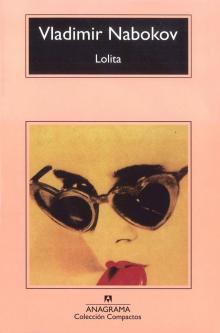 Lolita
Lolita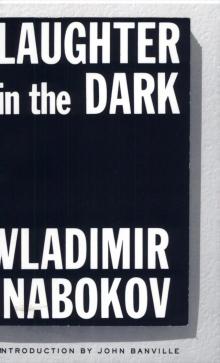 Laughter in the Dark
Laughter in the Dark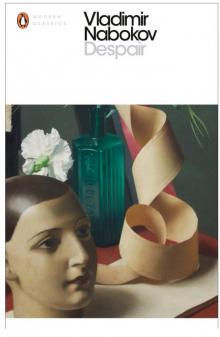 Despair
Despair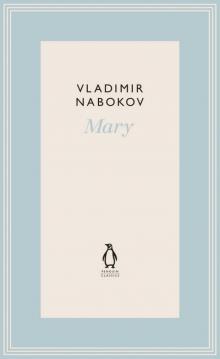 Mary
Mary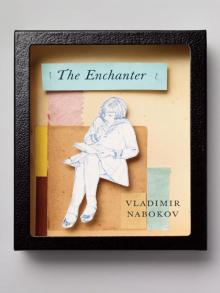 The Enchanter
The Enchanter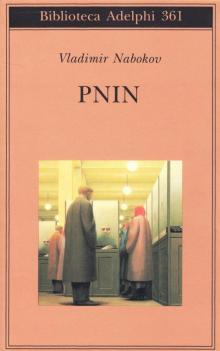 Pnin
Pnin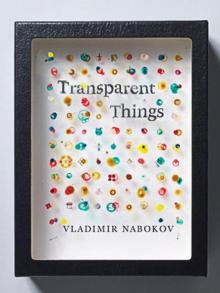 Transparent Things
Transparent Things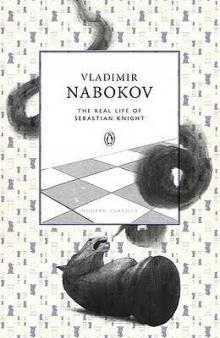 The Real Life of Sebastian Knight
The Real Life of Sebastian Knight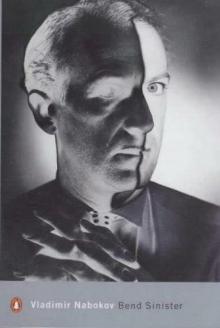 Bend Sinister
Bend Sinister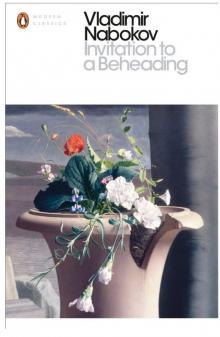 Invitation to a Beheading
Invitation to a Beheading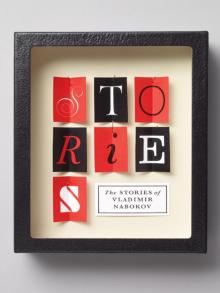 The Stories of Vladimir Nabokov
The Stories of Vladimir Nabokov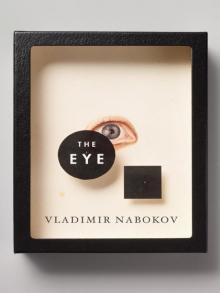 The Eye
The Eye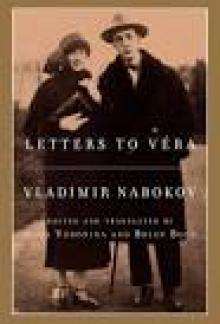 Letters to Véra
Letters to Véra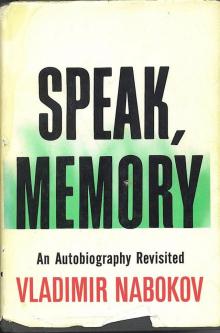 Speak, Memory
Speak, Memory The Gift
The Gift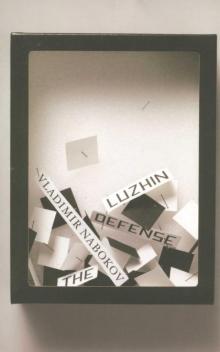 The Luzhin Defense
The Luzhin Defense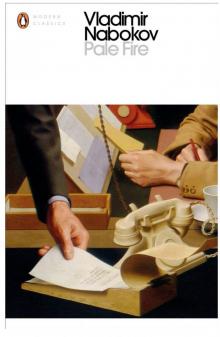 Pale Fire
Pale Fire Glory
Glory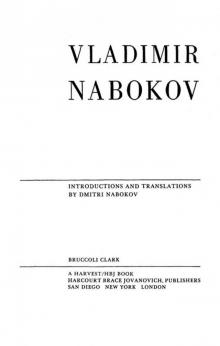 Man From the USSR & Other Plays
Man From the USSR & Other Plays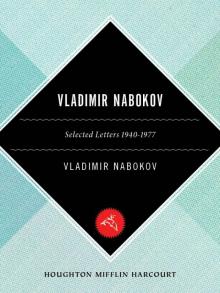 Vladimir Nabokov: Selected Letters 1940-1977
Vladimir Nabokov: Selected Letters 1940-1977 Strong opinions
Strong opinions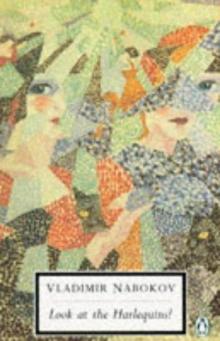 Look at the Harlequins!
Look at the Harlequins!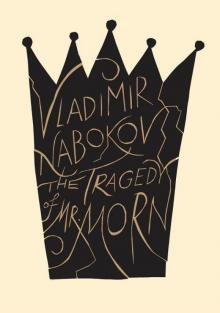 The Tragedy of Mister Morn
The Tragedy of Mister Morn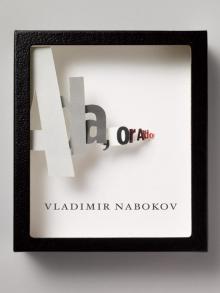 Ada, or Ardor
Ada, or Ardor Lectures on Russian literature
Lectures on Russian literature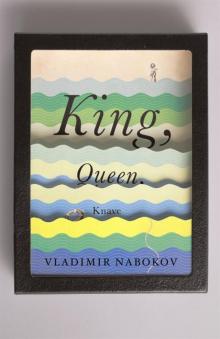 King, Queen, Knave
King, Queen, Knave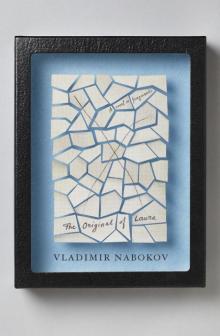 The Original of Laura
The Original of Laura